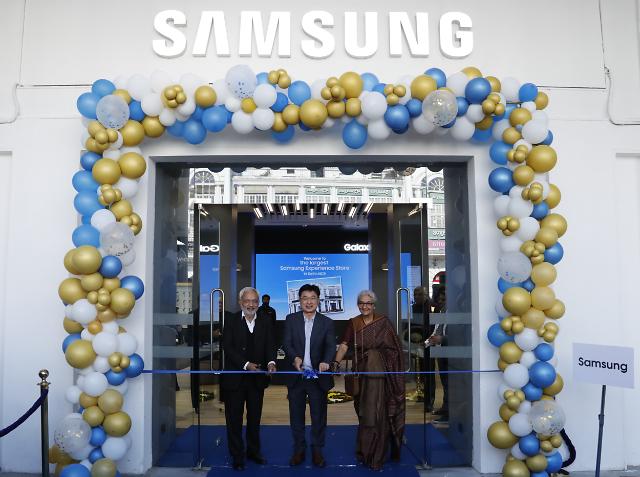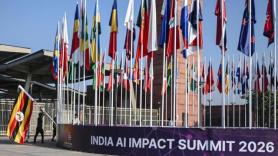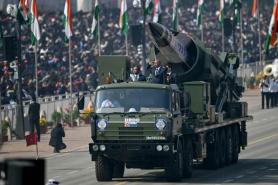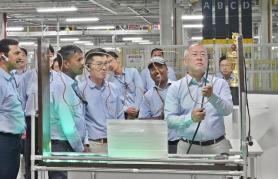
[Yonhap]
The central bank said in a report that if China's role is reduced in the global supply chains due to conflicts between the U.S.-led Western democracies and authoritarian countries such as China and Russia, India could emerge as a beneficiary of the rivalry.
The BOK took an example of Taiwan's Foxconn, the world's largest contract electronics maker and key iPhone assembler for Apple Inc., which announced a plan to increase its workforce in its factory in India four-fold from the current 17,000 to 70,0000.
The report said that U.S. corporations are highly likely to relocate their production facilities from China to India if the U.S.-China negotiations for a free trade agreement (FTA) makes progress and the U.S. government provides more tax incentives for companies moving out of China.
The BOK suggested that South Korean firms should make inroads into India more actively in order to take advantage of India's high growth potential.
However, the central bank cited environmental degradation, a lack of infrastructure, costs arising from regulations and trade protectionism as downside risks of India.
Copyright ⓒ Aju Press All rights reserved.




